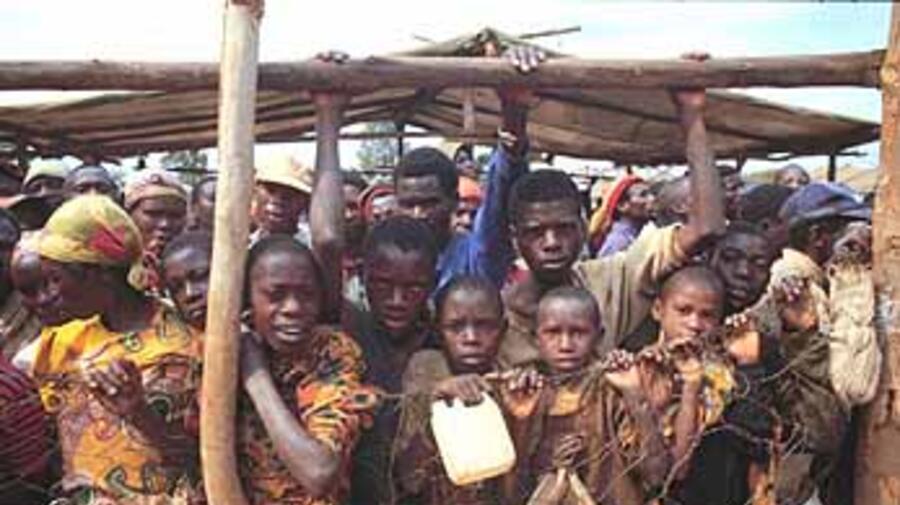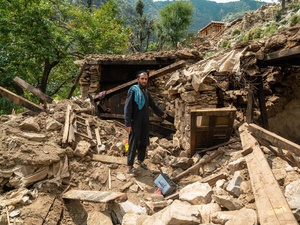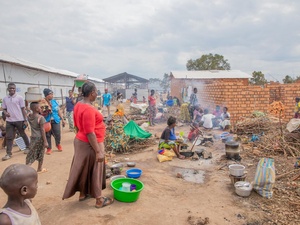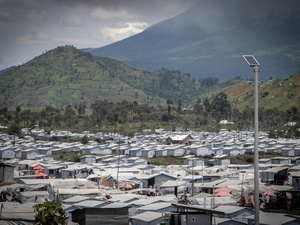UNHCR agrees to facilitate return of Burundi refugees
UNHCR agrees to facilitate return of Burundi refugees

Refugees from Burundi and Rwanda at a camp in Tanzania.
BUJUMBURA, Burundi, Jan.16 (UNHCR) - The U.N. refugee agency agreed Wednesday to facilitate the voluntary return of some 345,000 Burundi refugees in Tanzania, but said it was not encouraging immediate repatriation because of continuing insecurity in the tiny central African country.
The decision was reached at the first meeting of the Tripartite Commission on Voluntary Repatriation of Burundi Refugees in Tanzania since the installation of a power-sharing transitional government in Burundi in November 2001. The Commission scheduled a similar meeting with Rwandan officials later in the week.
"We agreed to start assisting Burundian refugees who want to return home," said Stefano Severe, the UNHCR representative in Burundi. "We will register them and give them transportation assistance from the camps in Tanzania to Burundi."
"But we are not yet encouraging that they return to Burundi," he cautioned, referring to the poor security conditions that still prevail in many parts of the country.
The policy change means that while UNHCR will help those refugees who say they want to go home, the agency will not set up repatriation programmes to encourage returns until the security situation improves.
Severe said the agreement with the Burundi and Tanzanian governments would also protect refugees returning home, who have often complained of harassment and extortion during the trip back. "Until now, the refugees went back home on their own initiative and faced a lot of problems on the way," he said. "Some of their difficulties will be eased by the new approach."
The refugees were driven out by eight years of a violent civil war that began in 1993 and that has also killed an estimated 200,000 people and caused the internal displacement of more than 300,000 others.
In addition to the 345,000 Burundi refugees in the camps, the Tanzanian government estimates that 200,000 others are living across the country, most having fled the 1972 ethnic massacre. Tanzania also hosts some 116,000 Congolese refugees.
The Tripartite Commission is expected to outline a detailed return plan of operation when conditions allow. When it was created in May 2001 under the Arusha peace accord, the Tripartite Commission set conditions for the return of the refugees, including voluntary repatriation and their right to return to their homes.
Several thousand refugees have returned home spontaneously since the start of last year, mainly to the central Burundi provinces of Muyinga, Ngozi and Kirundo. At the same time, more than 14,000 others fled to Tanzania to escape the continuing insecurity in the country.
The Tripartite Commission is also scheduled to meet in neighbouring Rwanda for two days later this week. The Kigali meeting, which will bring together UNHCR and the governments of Tanzania and Rwanda, aims to find ways of encouraging more Rwandan refugees to return home from Tanzania.
In 2001 some 3,460 Rwandan refugees were assisted home by UNHCR, while about 24,000 more remain in Tanzania. The Rwandans fled at the time of the 1994 genocide in that country.









